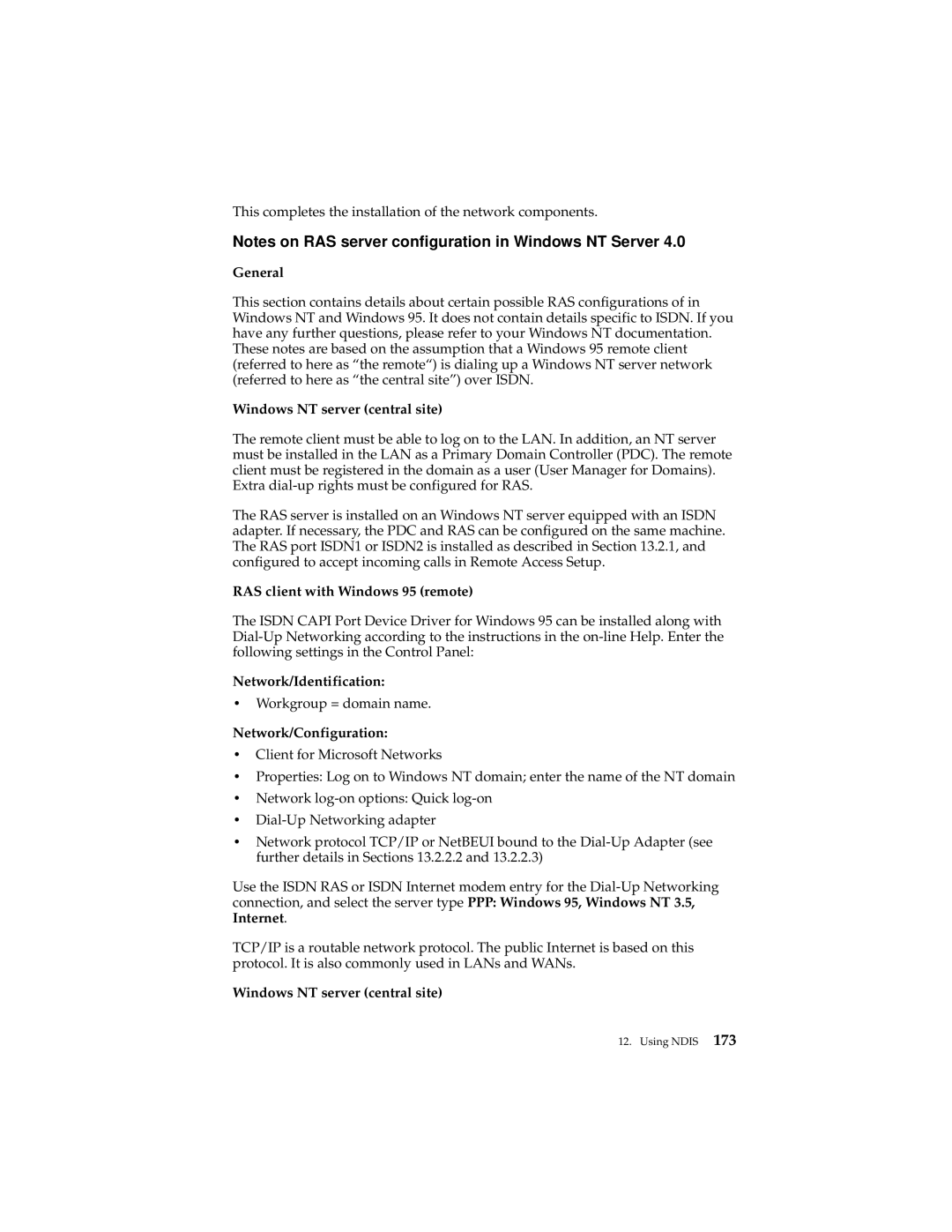This completes the installation of the network components.
Notes on RAS server configuration in Windows NT Server 4.0
General
This section contains details about certain possible RAS configurations of in Windows NT and Windows 95. It does not contain details specific to ISDN. If you have any further questions, please refer to your Windows NT documentation. These notes are based on the assumption that a Windows 95 remote client (referred to here as “the remote“) is dialing up a Windows NT server network (referred to here as “the central site”) over ISDN.
Windows NT server (central site)
The remote client must be able to log on to the LAN. In addition, an NT server must be installed in the LAN as a Primary Domain Controller (PDC). The remote client must be registered in the domain as a user (User Manager for Domains). Extra
The RAS server is installed on an Windows NT server equipped with an ISDN adapter. If necessary, the PDC and RAS can be configured on the same machine. The RAS port ISDN1 or ISDN2 is installed as described in Section 13.2.1, and configured to accept incoming calls in Remote Access Setup.
RAS client with Windows 95 (remote)
The ISDN CAPI Port Device Driver for Windows 95 can be installed along with
Network/Identification:
•Workgroup = domain name.
Network/Configuration:
•Client for Microsoft Networks
•Properties: Log on to Windows NT domain; enter the name of the NT domain
•Network
•
•Network protocol TCP/IP or NetBEUI bound to the
Use the ISDN RAS or ISDN Internet modem entry for the
TCP/IP is a routable network protocol. The public Internet is based on this protocol. It is also commonly used in LANs and WANs.
Windows NT server (central site)
12. Using NDIS 173
